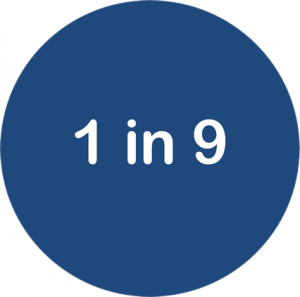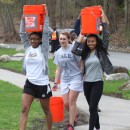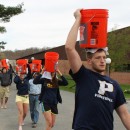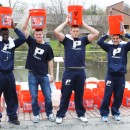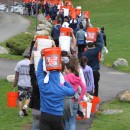How to communicate the importance of an everyday thing like water? That was the puzzle Pace Academy for Applied Environmental Studies faced when planning its 007 Campaign to dramatize the national and global water crisis.
We organized the Walk for World Water, where one hundred twenty Pace students and faculty marched a mile with buckets of water on their heads, in solidarity with those in the developing world obligated to retrieve water for their families through difficult circumstances. For the students’ efforts, $5,000 was donated to Engineers Without Borders to create a community water well in Tanzania.
But we also needed an education campaign. Yes, water is essential to life. But how much do you know about water?
Water has raised and destroyed civilizations. Our own bodies are 60% water. 70% of the planet is covered in water and, yet, only .007% of Earth’s water is available for our use (hence the “007 Campaign.”) But would such facts be enough when, for many of us, water is as available as the nearest tap or river? When it routinely just falls from the sky?
As an awareness campaign, 007 was designed to communicate the urgency of the issue to a large and diverse group, and embody the mission of Pace Academy to advance the understanding of the mutually enhancing relationship between society and nature.
We present simple facts through a 007 website and poster campaign that challenged students and faculty to identify the questions that match the answers on the individual posters. We utilized Facebook, and enhanced classroom discussions. We pitched water themes to the student-run radio, petitioned Mayor Bloomberg, brought student leaders to a film screening, ran articles in the university papers, and arranged an art exhibition.
Click a pic to view gallery
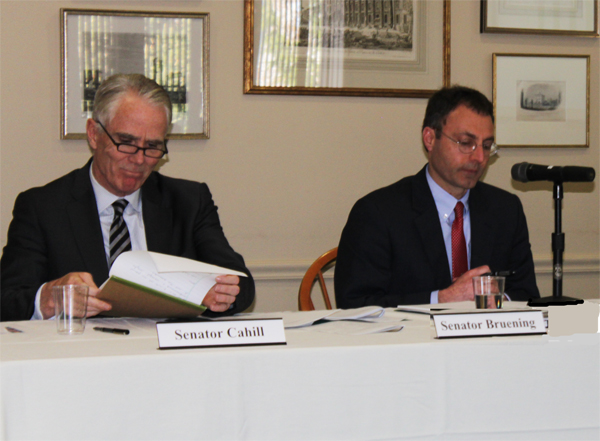
“Senators” John Cahill, former Secretary to Governor George E. Pataki, and New York State Court of Claims Judge Glen Bruening prepare to grill Pace University students.
We also held a Mock Senate Hearing on the Clean Water Act, where six teams of undergraduate students representing the business, technology, science, public health, education, and international aspects of the 40 year-old Clean Water Act (CWA) presented testimony based on a semester of research about reforming the law and better protecting America’s waters
As the campaign’s Project Coordinator, my task was to connect the dots (or drops, if you will) within our Pace University community. What does a class on poetry have to do with water? That can be surmised well by Ralph Waldo Emerson’s line, “The water understands Civilization well.” Concerned with international conflict? Sudanese refugees still struggle to find clean water to drink and wash. What might prove to be the most enduring and expensive regional effects of Superstorm Sandy? The pummeling taken by our wastewater treatment systems.
Not just nations and cities, but companies cite water availability, quality, and sanitation as one of their greatest challenges in the 21st Century. Even trying to describe the full breadth of water’s importance here feels like attempting to catch a wave in a bucket – precisely why water was such a fitting topic for Pace Academy’s first university-wide campaign.
Through the 007 Campaign, we learned a lot about what motivates students, some of it surprising. Pace football players were at first disbelieving about young girls traveling miles to fetch water, but then enthused knowing their participation in the Walk for World Water could ripple into a meaningful change for a community in another part of the world.
When students rise to a difficult challenge, whether physically to lug a heavy bucket, or politically to testify at a hearing, they learn to find the best in themselves. What I hope for from the 007 Campaign, and from campaigns we launch in the future, is that they will also learn to make their best available to the rest of the world.
And it all started with an everyday thing like water.


